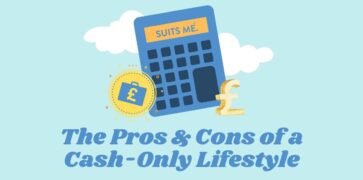A cheque is a way to make a payment. More specifically, a cheque is a document which orders a bank to make a payment for a specific amount of money to another bank account whose name and account details the cheque is addressed to.
In 2009, the Payments Council decided that cheques would be phased out in the UK in October 2018. However, this didn’t come into effect after the Payments Council spoke to the Government and others about the importance of the cheque clearing system in the UK. They, therefore, decided that cheques can still be used as payment for “as long as they’re needed”.
Do Banks Still Accept Cheques?
Some Challenger banks, online-only banks and other forms of alternative banking solutions, like us here at Suits Me®, have begun to phase cheques out as a form of payment and don’t often have a facility in place to handle and process cheques.
One reason for this is cheques can be seen by many as an outdated source of transferring money to another account or making payments. Secondly, cheques are not a form of legal tender. In fact, if you owe someone money and you wrote them a cheque, they’re not obliged to accept this as payment.
However, if your banking provider still accepts cheques it’s worth noting that they will commonly reject cheques which are over six months old, even though cheques in the UK don’t have an expiry date.
What’s the Problem with Using a Cheque Anyway?
The main issue with paying by a cheque is the speed and time it takes for the payment to be processed and the funds to actually be transferred from one bank account to the other.
When you cash a cheque, it usually takes around 2-3 business days for a cheque to clear, so if a cheque is cashed in on a Friday, it may only arrive in a person’s bank account on Wednesday. Nowadays, however, with the advancement with online banking, it’s easy to send it’s easy to complete a payment transfer in a matter of minutes.
Although cheques are still a safer method of payment than cash, they still carry a risk. A cheque contains a large amount of personal information about the issuer, including name, address, account number and sort code. Cheque fraud is a common form of identity theft. There are three main types of cheque fraud including:
- Counterfeit: cheques that have been printed on non-bank paper, that fraudsters will use to illegally cash money.
- Forgery: a real cheque, but the signature of the account holder has been faked.
- Fraudulently Altered: a real cheque filled out by the account holder, but the recipient’s name has later adjusted by the fraudster.
Is There any Reason I Would Need to use a Cheque?
Although cheques are a uniquely outdated form of payment. There may be some reasons that you may choose this form of payment. For example, if you’re making a large payment, need to make a payment but won’t have the funds available for a few days or gifting some money.
If you’re making a large payment via cheque, it automatically creates proof of payment and so you won’t need a receipt. If you’ve already given a cheque to a person and they misplace it, you don’t need to worry as a person will need identification to cash a cheque in their name.
Additionally, if you’ve noticed that you’ve made a mistake and decide you no longer want to make the payment a cheque can be stopped if needed. All cheques handled by a banking provider can be traced if the recipient hasn’t received the money.
The Future of Cheque-based Payments
Although you may have personally moved away from using cheques, for some people, there is still a need for them to exist within the banking landscape to pay their bills or make larger payments.
Some people actually prefer to pay via cheque as opposed to online banking or other forms of digital payments as they feel they have more control over who they’re sending their money too, so it’s likely cheques will still be around for a lot longer than once planned by the Payments Council.





